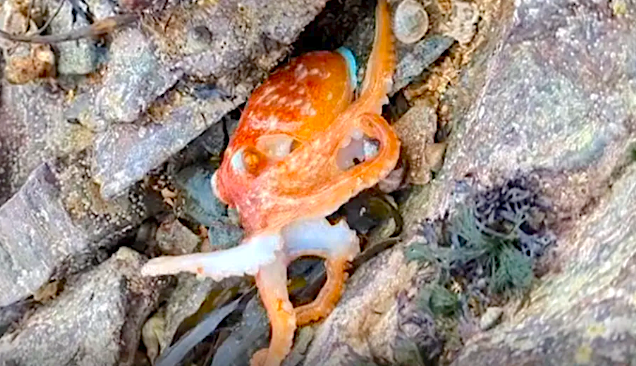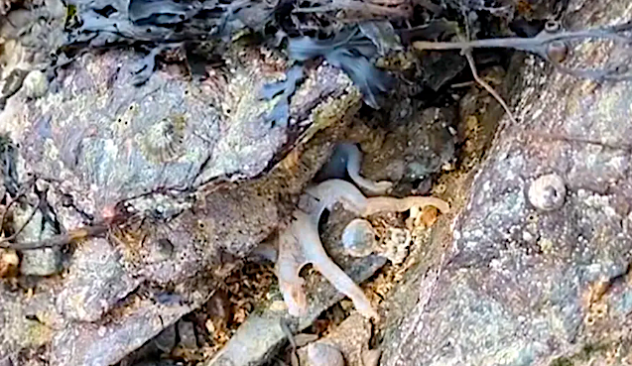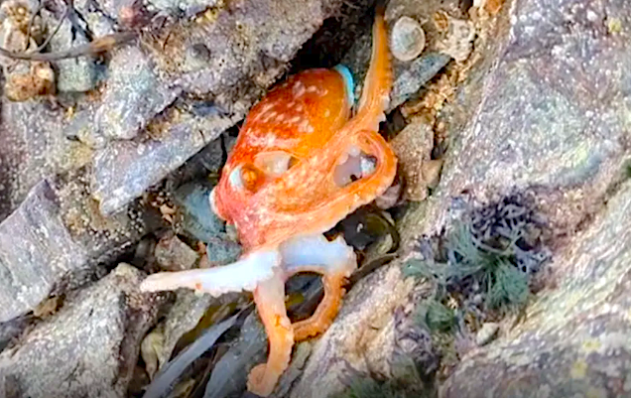'We couldn't believe it': Octopus changing color steals the show, delights beachgoers
In a delightful encounter along a beach in Wales, marine enthusiasts were treated to a rare sighting of a curled octopus. The captivating footage, captured by Ciara Taylor, a project assistant for the Marine Conservation Society, has sparked excitement among rockpoolers and conservationists alike.
Taylor was honing her marine identification skills when fellow beachcombers alerted her to the presence of mysterious tentacles peeking out from beneath a rock. "We couldn't believe it," she exclaimed. "The octopus emerged and began its slow crawl back toward the sea. It's a vivid reminder of the stunning wildlife we have here in North Wales and underscores the importance of protecting it."
 |
When the octopus first emerged, it was a pale, almost translucent color. (Image credit: Marine Conservation Society/TMX) |
 |
The creature turned bright orange within seconds and then made its way back into the ocean. (Image credit: Marine Conservation Society/TMX) |
The video reveals the octopus's white tentacles gradually unfurling from their rocky hiding place. As if performing a magical transformation, the creature swiftly changes color, adopting a vibrant orange hue, and navigates across the rugged terrain of rocks and seaweed.
Fortunately, the intrepid cephalopod made it safely back into the sea, leaving a lasting impression on those fortunate enough to witness the spectacle.
The Marine Conservation Society's Seasearch program, which relies on contributions from rockpoolers, snorkelers, and divers, reported an intriguing trend in octopus numbers during 2022. While curled octopuses are commonly found in the area, the data revealed an unexpected surge in common octopus sightings. Angus Jackson, Seasearch Data Officer, explained, "We typically receive only a handful of records for curled octopuses each year. However, last summer and autumn, we observed an unprecedented boom in common octopus populations-a phenomenon not seen for several decades."
In 2023, Seasearch continued to receive more records of common octopuses than usual, although the numbers didn't match the remarkable surge of the previous year. Scientists speculate that environmental conditions may play a crucial role in these fluctuations. Given that octopuses have relatively short lifespans-usually not exceeding a year-it's possible that changing oceanic factors influenced their abundance.
As curiosity about marine life grows, the Marine Conservation Society encourages more people to participate in their Seasearch program. By documenting trends and sharing observations, citizen scientists contribute valuable data that helps researchers understand our ever-evolving seas. Whether you're a seasoned diver or a casual beachcomber, joining Seasearch provides a unique opportunity to explore the mysteries of the deep and contribute to marine conservation efforts.
So next time you're exploring the shoreline, keep an eye out for those elusive octopuses-they might just reveal secrets hidden beneath the waves!

 Yahoo News
Yahoo News 


